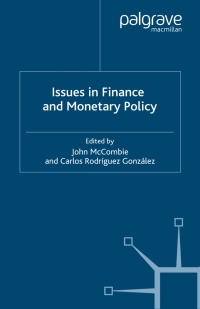Answered step by step
Verified Expert Solution
Question
1 Approved Answer
1. Contracts may be classified into two: unilateral and bilateral contracts A. TRUE B. FALSE 2. A unilateral contract is between two persons or between
1. Contracts may be classified into two: unilateral and bilateral contracts A. TRUE B. FALSE
2. A unilateral contract is between two persons or between several parties A. TRUE B. FALSE
3. A mere enquiry is a statement, proposition or conduct by one person(s) to another person(s) indicating a willingness to be held to that statement, proposition or conduct. A. TRUE B. FALSE
4. The party making the offer is called the offeror or promisor and the party to whom it is made is called the offeree or promise. A. TRUE B. FALSE
5. A contract cannot be formed and cannot be said to be binding when the statement from the offeror is an invitation to treat A. TRUE B. FALSE
6. The display of goods in a shop window with prices attached is a contractual offer not an invitation to treat. A. TRUE B. FALSE
7. Fisher v. Bell is an authority for the postal rule in contract law. A. TRUE B. FALSE
8. In Carlill v. Carbolic Smoke Ball Co. Ltd., it was held that in unilateral contracts, the requirement of
actual communication of acceptance cannot be waived. A. TRUE B. FALSE
9. Auction sales may be Subject to a Resale Price. A. TRUE B. FALSE
10. For acceptance to be effective, it must be made by the offeror himself or his authorized agent. (a) True (b) False
11. Where acceptance is communicated by letter sent through the post, the acceptance takes effect at the time when the letter, even if improperly addressed, is posted. (a) True (b) False
12. Adams v. Lindsell is an authority for the contract law principle of invitation to treat. (a) True (b) False
13. The postal rule applies even if a letter of acceptance is lost in the mail and never reaches the offeree. (a) True (b) False
14. Revocation of an offer requires actual direct notice and will therefore be ineffective if the offeree receives notice of it through a reliable third party. (a) True (b) False
15. Cross-offers may constitute a valid contractual agreement. (a) True (b) False
16. A contract of employment of a casual worker need not be in writing. (a) True (b) False
17. In instantaneous communications between parties, the contract is only complete when the acceptance is received by the offeree. (a) True (b) False
18. Mere inquiries from the offeree are counter offers and they reject and destroy the original offer previously made by the offeror. (a) True (b) False
19. Necessaries are things without which a person cannot reasonably exist and include food, clothing, lodging, education and training in a trade and essential services. (a) True (b) False
20. A counter offer rejects and destroys the original offer previously made by the offeror and makes the tendering of a subsequent acceptance of the original offer invalid. (a) True (b) False
21. The performance of an act or a promise to perform an act may be sufficient consideration for another promise notwithstanding that the performance of that act may already be enforced by a pre-existing legal duty whether enforceable by the party or not. (a) True (b) False
22. Where a promise is made subsequent to and independent of the act in question, it constitutes past consideration and such consideration is generally not sufficient to support an enforceable contract.
(a) True (b) False
23. The postal rule applies to letters of acceptance, based on the express terms of the offer. (a) True (b) False
24. Where a counter offer is communicated through the post, the counter offer takes effect from the time when the letter is posted. (a) True (b) False
25. A promise to keep an offer open for acceptance for a specified period of time is binding on the offeror only when the offeree has provided consideration for the promise. (a) True (b) False
26. Contracts entered into between a husband and wife in a domestic setting are usually intended to create legal relations between them. (a) True (b) False
27. The rules of Common Law and customary law serve as the primary source of law regulating contracts for the sale of goods. (a) True (b) False
28. Under every contract for the sale of goods the seller must transfer the title to an absolute legal interest or an absolute right of ownership of the goods to the buyer and not mere possession of the goods or any limited or qualified title. (a) True (b) False
29. Once the buyer has been given the opportunity by the seller to inspect the goods, he will be deemed to have examined the goods even if he performs an incomplete or haphazard examination, or if he fails to examine the goods at all. (a) True (b) False
30. Where the seller is in breach of a term classified or described as a fundamental obligation the buyer is not entitled to repudiate or terminate the entire contract. (a) True (b) False
Step by Step Solution
There are 3 Steps involved in it
Step: 1

Get Instant Access to Expert-Tailored Solutions
See step-by-step solutions with expert insights and AI powered tools for academic success
Step: 2

Step: 3

Ace Your Homework with AI
Get the answers you need in no time with our AI-driven, step-by-step assistance
Get Started


